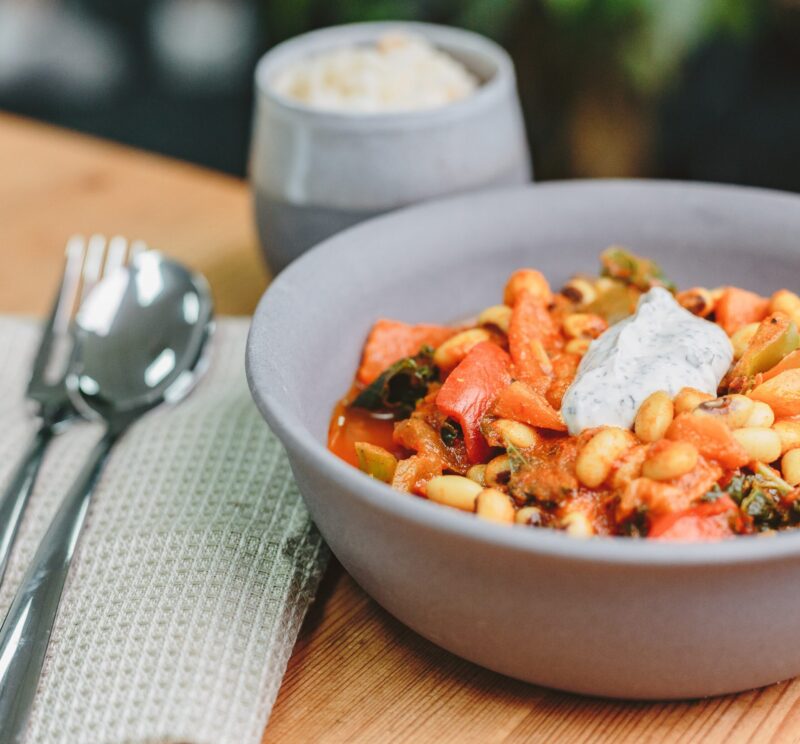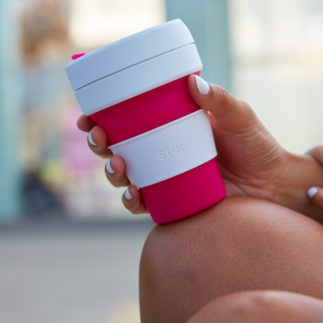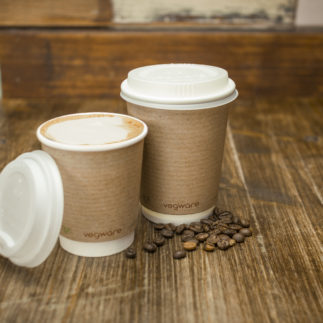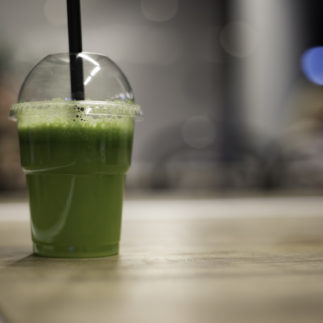Single-use plastics. The law is changing.
So far in England, the Government has already banned single-use plastic straws*, cotton buds and stirrers. From 1st October 2023, (subject to Parliamentary approval) new laws on single-use plastics come into force. From this date the following single-use items will be also be banned in England.
- Plastic cutlery
- Plastic plates, trays, bowls*
- Plastic balloon sticks
- Certain types of single-use expanded and extruded polystyrene cups and food containers*
*Exemptions apply.
This is your chance to think differently and shift from single-use to #reuse.
Read on to find out more about the PlasticFreeGM campaign. Make sure to sign the pledge to commit your support and take a look at our factsheets below for lots of advice on sustainable alternatives to single-use items.
The campaign
PlasticFreeGM asks businesses, organisations and individuals to pledge to take action to reduce avoidable single-use plastics across Greater Manchester. By making better choices about the products we use, the way we work, and the way we live our lives, we can all make a positive change to our city-region.
Sign the pledge and commit to taking action to reduce avoidable single-use plastics across Greater Manchester. Thank you!
Sign the pledge…
Together, we can make a change.
Sign the pledge and help us to make Greater Manchester one of the greenest city regions in Europe.
Our partners
The GMCA worked alongside a number of individuals and organisations to bring you the PlasticFreeGM campaign. Those involved with this campaign researched, reviewed, discussed and considered the products, behaviours, systems, and choices available (and those that we recognise are currently lacking) in reducing single-use plastics, and in more generally shifting towards a more sustainable future. If you feel that any of the advice we are offering needs to change or can provide any key pieces of knowledge, please get in touch.
Make a change
It is estimated that 50% of plastic products currently made are disposable i.e. to be used once and then thrown away
Reducing the amount of avoidable single-use plastic we use can have a huge impact on our environment. With only 9% of the world’s plastic waste being recycled, and plastic items typically taking around 400 years to degrade (some releasing toxic chemicals in the process) we need to take action now.
Making the right choices
It’s not always easy to make the most sustainable choice, and any choice we make has an impact on our planet. #PlasticFreeGM aims to talk openly about the difficulties and pitfalls of trying to make sustainable choices, offering practical advice and support to businesses and organisations struggling to work out what steps to take for the best.

What is the best option?
Our aim is to eradicate the use of avoidable single-use plastics and we need your help to do it. So if you run a café, take away, restaurant, or bar, take a look at the best options in order of positive impact….
- Reduce your use – Creating no waste at all is always the best option. Say no to items like straws and stirrers and simply do without, and only offer to people that need them., e.g. someone with a physical disability who might struggle to pick up their drink and require a drinking straw.
- Go reusable wherever possible – As a general rule, moving from disposable to reusable is more sustainable. Choose reusable crockery, cutlery, and cups, and avoid creating rubbish or recycling in the first place. Take a look at Refill Greater Manchester and find a place to shop, eat a drink near you, without the pointless plastic
- Choose items that can be easily recycled – If you really can’t do without a disposable option, choose items that are easily and widely recycled and make sure you have a dedicated recycling service in place. As a business we advise that you always talk to your waste management company to make sure the alternative items you choose can be properly recycled or composted. In Greater Manchester, residents cannot put compostable items in their food and garden bin at home.
Factsheets
PlasticFreeGM has worked through some of the ‘worst offenders’ in terms of avoidable single-use plastics (straws, stirrers, takeaway containers, hot and cold drink cups, and cutlery) and offers advice and guidance on how to make more sustainable, low carbon choices.
We aim to make it easier for businesses to know that they are making the right choice in an area that can sometimes be baffling. Our factsheets talk through the minefield that is biodegradable, oxo-degradable and compostable materials. They offer the best advice on making a change taking into account government legislation, carbon footprint, responsible disposal, recycling or composting routes, and other practical factors.
Our 8-step guide to reducing plastic waste in the Tourism and Hospitality sector will help you to develop your own action plan and offers practical advice to get you started.
A few good reasons to make a change…
Government action
An important aspect of tackling single-use plastic waste is innovation in more sustainable products and processes. We need significant investment in alternatives to single-use plastic, and in the technology to reuse and recycle products, creating a circular economy where resources are not lost. This needs to happen on a much larger scale, and at the same time, we need investment in the plastic recycling industry in the UK to develop the capacity of the domestic recycling market and stimulate market demand for these materials.
The Government is taking action and we welcome the release of the Resources and Waste Strategy for England alongside the introduction of new legislation to tackle plastic pollution and litter, including:
- Deposit Return Scheme for drinks containers to improve recycling.
- Extended Producer Responsibility scheme where producers will cover the full cost of recycling and disposing of their packaging.
- Plans for Consistent Recycling Collections for households and businesses in England.
- Plastic packaging tax on plastic packaging which doesn’t meet a minimum threshold of at least 30% recycled content.


Why target avoidable single-use plastic?
This issue isn’t an easy one. The answer is not as simple as plastic = bad. If plastic products are made to last and are reused again and again, and then recycled at the end of their life, they can be a sustainable option. Some single-use disposable plastic items are less avoidable. For example, single-use plastics used in medical testing that are discarded safely to avoid contamination and impacts on human health.
The problem is in our prolific use of avoidable single-use plastic items, like plastic drinking straws, plastic drinks stirrers, and disposable coffee cups and lids. These are all examples of items that if made of plastic are used on average for around 20 minutes, but can take over 400 years to degrade.
Plastic doesn’t breakdown at a chemical level (it doesn’t biodegrade or compost), it simply degrades. This means it breaks down into smaller and smaller pieces, a process that can take hundreds of years. This process releases CO2, increasing our carbon footprint, and leaches chemicals that can be dangerous to wildlife, soil, eco-systems, and human health. The tiny pieces of plastic that result from a plastic product degrading, termed micro-plastics, also get into ecosystems, wildlife, and even our bodies.
What about recycling?
Recycling a single-use plastic product uses energy and water, and can require more virgin plastic to create a ‘recycled’ product that’s fit for use. Currently, only nine per cent of the world’s plastic is recycled – a problem because most plastics are not biodegradable and typically take more than 400 years to degrade, a process that can release toxic chemicals into our environment.
Please do recycle plastic products that you can.
Recycling a plastic product is much better than disposing of it in the general waste. As a business we advise that you always talk to your waste management company to make sure the plastic items you use can be properly recycled. In Greater Manchester, residents can now recycle more types of plastic in their mixed recycling bin at home. Find out more on the Recycle for Greater Manchester website. Recycle Plastic Pots, Tubs & Trays | Recycle for Greater Manchester





